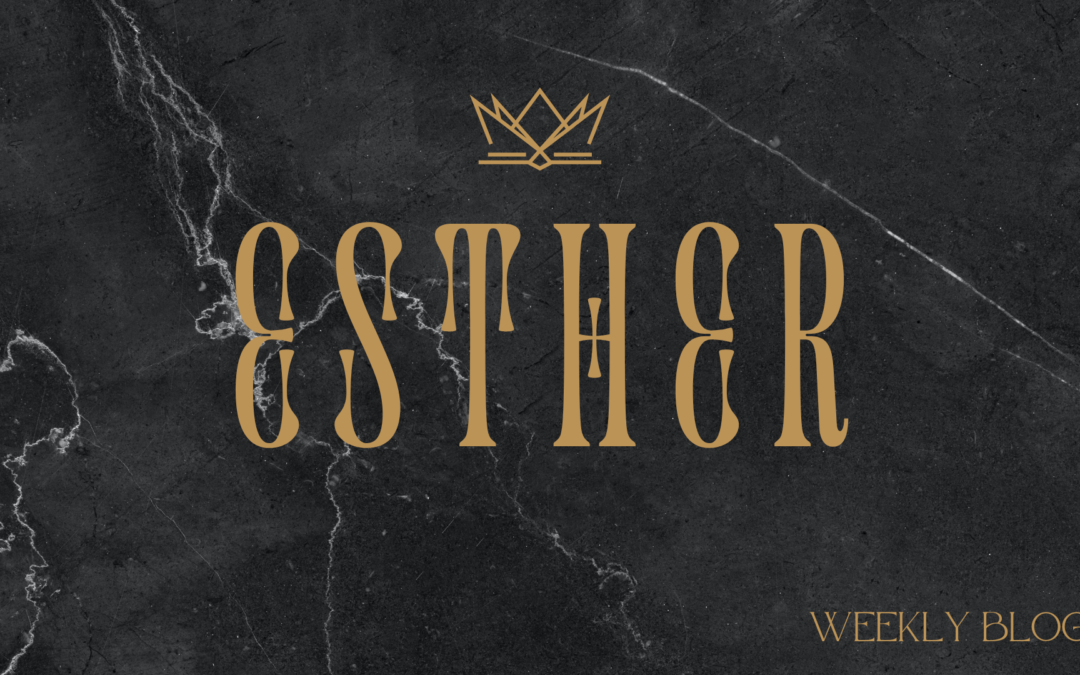ESTHER—Week 2
Esther 2
As we pick up our journey through the Book of Esther, no less than four years have passed since the events of Chapter 1. Xerxes has returned from his disastrous Greek campaign and is understandably depressed. Unfortunately for Xerxes, he cannot seek the solace of his beautiful queen, Vashti, because he exiled her. So, Xerxes follows the advice of his councilors and holds a “royal beauty pageant” to find a new queen.
It is through this royal beauty pageant that we are introduced to the heroine of our story, Esther. Her Hebrew given name is Hadassah, which means “myrtle.” Esther is the Persian name given to her and means “star.” We learn that this young Jewish orphan has been raised by her cousin, Mordecai, who is a minor official in the Persian government. We also are provided with an abbreviated genealogy for Mordecai. Though it may seem a superfluous detail, Mordecai’s ancestry will provide a key insight into the motivations of the antagonist of this story, Haman. We’ll discuss that more next week.
Quite frankly, much of what happens to Esther and the other young women in this chapter is unsettling for the modern reader. These young virgins are taken from their homes and groomed for a year to spend the night with Xerxes. If the young woman does not please the king, then she is sent to the concubine harem to live out her days. If she does please the king, then she will have access to him only when he calls for her by name. This is hardly a fairy tale romance. Added to this difficult circumstance is Mordecai’s strict charge to Esther that she not reveal her Jewish heritage. Though we are not told why Mordecai forbids Esther to reveal her heritage, we can surmise from events later in the book that Mordecai is aware of antisemitic elements within the palace, and he fears for Esther’s safety and standing. Esther is forced to lie about who she is and compromise her adherence to the Law of Moses to protect herself.
Mordecai and Esther’s decision in Chapter 2 creates an interesting ethical question for us as believers, especially when we juxtapose their decision with that of Daniel and his companions in Daniel 1. Daniel and his young friends determined not to compromise their adherence to the Mosaic Law, and God blessed them for it. Yet, Mordecai and Esther did compromise Esther’s adherence to the Mosaic Law, and God still blessed them and used them. Does that mean that God condones us breaking his law under certain circumstances? That is a question that has been hotly debated among Christian philosophers down through the ages. However, I think that while such debate can be thought provoking, it misses the point. I think the point of Esther 2 is that God’s grace is bigger than our decisions—even the questionable ones. Whether we think Mordecai and Esther made the right decision or not is really irrelevant. What matters is that God showed grace to this family in difficult circumstances. I don’t know that we can even begin to grasp the turmoil they faced. Confronted with this difficulty, they make a decision that some might condemn, and others might excuse. Yet, God’s sovereign plan and his grace were not contingent on them making the right decision. God was determined to use Esther and Mordecai in a special way to bring salvation to His people, and their compromise in this circumstance did not change that. God showed grace instead of condemnation. So should we.
Questions:
- Take a moment to read and compare Dan. 1 and Est. 2. What might have been some of the reasons these young people chose different ways to deal with these difficult decisions?
- What are some decisions modern believers might face that might involve potential compromise? How might those decisions be redeemed by God?
- How are you at showing grace to those you think have compromised? What might be the keys to moving from a spirit of condemnation to a spirit of grace?






